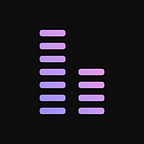In a time where everyone is stuck at home watching their lives pass by as they scroll through their phones with an inevitably shorter and shorter attention span, TikTok, a 15-second video app, seems to be omnipresent, prevailing over everything from our lifestyle choices with the questionable “that girl” aesthetic to our fashion choices with the boom in y2k (the early 2000s) fashion and even our music taste.
None of us can escape the claws of a massive TikTok hit- there’s one every two weeks that keeps popping up wherever you go, through retail store speakers, or the earphones of a passerby, or your internet-niche-celeb sibling, and almost everywhere you tread on the Internet. Point in case: Old Town Road.
If you didn’t know, back in 2019 Lil Nas X was a 19-year-old college dropout living at his sister’s house and feeling “bit lonely”, who had bought a simple beat for $30, recorded a song, half country, and half rap, and posted it online, which went on to become the most successful song of all time, the first-ever song to reach 15 times platinum. Much of this success can be credited to the song becoming an early TikTok “meme”, picked up by millions of users. Within a year, the track won 2 Grammys and Lil Nas X seems set for this year’s Grammys as well with six major nominations in his bag. On the addictive app, a 15-second clip can go from a top trend to a Grammy-winning track in less than one year. And if it seems like TikTok makes stars overnight, well, that’s because the app does just that. According to TikTok, in 2020 alone over 176 songs received over 1 billion views as sounds, which just goes to show how it’s changing our listening habits, too.
Lil Nas X’s success has become the origin story of a remarkable number of other musicians who have gone viral on TikTok. The app and its audience are changing the way hits are made, how artists promote music, and how the world discovers music, even for those artists who choose not to engage with it. Some of 2021’s biggest global hits were hardly successful when they were initially released to small audiences. Africa’s most successful pop song ever, CKay’s Love, Nwantiti, was released in 2019, but shot to fame only in 2021 and has now been used in more than 7 million TikTok videos.
The TikTok popularity spell is not just limited to Gen Z artists who know the power of the internet. When a man named Nathan Apodaca went viral after he posted a video of himself gliding down a highway on his longboard, casually drinking cranberry juice from a bottle, he was lip-syncing to Dreams, the 1977 Fleetwood Mac hit. Dreams was subsequently used by millions of TikTok creators and re-entered the Billboard Hot 100 more than 40 years after its original release. Old songs are having a remarkable comeback with unexpected audiences all over TikTok.
If you haven’t heard these lines “She ain’t got no money/ Her clothes are kinda funny/ Her hair is kinda wild and free/ Oh but love grows where my Rosemary goes…”, you will for sure, increasingly even, over the next few days as 1970s one-hit-wonder Edison Lighthouse’s bubble-gum smash Love Grows (Where My Rosemary Goes) gaining around 3 million streams over the past week itself, becoming one of 2022’s biggest-growing streaming hits. This proves that almost all of pop history is fair game for a revival when it comes to TikTok.
The music industry is definitely changing, with music from all over the world and from every decade getting recognition. The audience also is expanding their streaming habits, discovering music different from their usual picks through TikTok, which in turn allows a lot of different artists to find their own footing in the industry without depending on the traditional power systems of the industry. However, it’s not so easy to anticipate what will be the next viral hit, because one day it’s a 1970s sea-shanty and the next it’s a short audio clip from a teenager recording in his garage. But that’s not to say the industry is leaving it all to luck since 15-second hooks tend to perform well, as do songs with CTAs, and anything that can be turned into a “challenge” tends to take off. And surely, most of those factors can be baked into the release of a single in no time.
What remains the biggest takeaway is that anyone from any background can make it big on the social media app, and now artists have more power than ever — and that shift towards democratization might be the biggest change the music industry has seen in quite some time.
